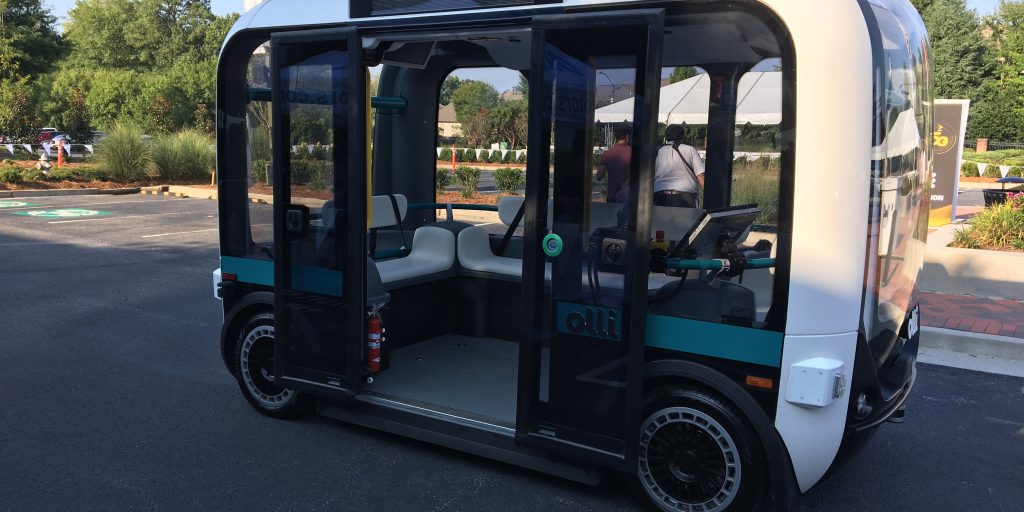Driverless shuttle programs emerge, gain approval in cities across the U.S.
Self-driving shuttle programs are popping up across the country, and some government agencies are reporting satisfaction with their programs.
Gainesville, Fla., officials unveiled the city’s first driverless shuttles on Feb. 3, during which they embarked on their first test rides, according to Gainesville TV station WCJB. The Gainesville shuttles are part of a partnership between Gainesville, the University of Florida’s Transportation Institute and the Florida Department of Transportation, called I-Street.
The I-Street shuttles can hold up to 12 people and will operate on pre-planned routes, per WCJB. Operators will be present for the testing phase of the program, which costs $2.5 million and will operate until June 17.
Meanwhile, Grand Rapids, Mich., officials are “really happy” with a pilot driverless shuttle program that has operated in the city since July, Grand Rapids TV station WOOD TV reports.
The Grand Rapids program is a yearlong initiative that involves a fleet of May Mobility-supplied self-driving shuttles transporting up to six riders each along a 3.2 mile route, WOOD reports.
In July, Mobile GR and Parking Services Managing Director Josh Naramore called the program “a real, viable service,” according to WOOD.
“One thing we’ve been interested in seeing, from the city side, is just sort of the receptiveness because you never know until you put something out there. Are people going to use it? Are they really going to think about it? And I think it’s been received really well,” Naramore told WOOD.
May Mobility is also the shuttle provider for a $1.2 million, one-year pilot program with the Rhode Island Department of Transportation (RIDOT), in which its six-seater shuttles are providing free rides along a 5.3-mile route in Providence, the Providence Journal reports.
Between the program’s start in May and Jan. 21, the shuttle gave over 33,000 rides, according to the Journal. RIDOT is looking into extending the program, too.
“I have asked them to consider, if we extend another year… to begin to think strategically how does micro-transit fit into our transportation system. There might be other routes in areas around the colleges where we might want to employ them,” Rhode Island Director of Transportation Peter Alviti Jr., told the Journal.




















